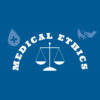Staring at a blank page and not quite sure where to begin? Don’t worry, we have been there before and vividly remember how it feels. Getting started is often the hardest part of the Personal Statement which is why we’ve created this guide series to help you produce your very best work.

How To Write A Memorable & Effective Opener
The opening statement and paragraph of your personal statement needs to be strong and engaging. It is your first chance to impress admissions tutors and an opportunity to leave a memorable impact on them. Your opener should be eloquent, impactful and above all personal.
Remember, you will not be alone in writing an attention grabbing opener. With the help of this guide and our top tips, we hope to keep you one step ahead in creating a truly impressive opening.
What To Include
- Although there is no official structure for a personal statement, the vast majority start with describing their motivation for studying Medicine. Your opener needs to give the admissions tutors an insight into why you want to do Medicine, thus an honest and personal answer is best.
- A statement or two that encapsulates what drew you towards Medicine is ideal. If you’re struggling to pinpoint this, go back to when you first started considering Medicine and reflect on your true motivations and thought processes.
- Be authentic and be yourself. Everyone’s motivations will be unique and often accumulate from various directions. Use this to your advantage. Remember, most students don’t have a ‘Eureka!’ moment. An honest, reasoned and collected approach in well written English will be rewarded greatly.
- A focus on making sure every word used is purposeful and meaningful was some of the best advice I ever received. Although it applied across your entire statement, it matters particularly in creating an effective opening.
Pitfalls To Avoid
- Don’t open with a cliché. Stating that you’ve wanted to be a doctor since you were five years old or that you really want to save lives does not set you apart. Firstly, it comes across as dull and may show admissions tutors that you have not fully considered the realities of a life in Medicine.
- Don’t plagiarise. With an abundance of resources and model statements available online it is increasingly tempting to borrow a line or two from the best. This takes away your originality and makes your work increasingly less personal. Furthermore, there is a s strong chance you’ll get caught. Put simply, read as many statements as you can, gather your thoughts and ideas but when it comes to writing, your work is the only one that counts.
- The wrong reasons. Medicine is a unique field. You are entrusted with patient care, privileged information and have an opportunity to really impact a person’s life. Whilst doctors are compensated for their work, a financial incentive is not a good reason to pursue this career and without deeper motivations you may fall short rather soon.
- Controversy. Grey areas are common in Medicine. Not everything is simply right or wrong. Topics such as euthanasia, discriminatory treating policies and the opportunity costs involved in public healthcare spending make interesting debates but may work against you if written about in your statement. It is often better to be neutral. You never know who may read your statement and you don’t want to give any reason for them to make a pre-judgement.
- ‘I want to help people’. By far one of the most common reasons for doing Medicine. Not only does this open you up to simple questions such as ‘why not nursing?’ but it is again bland. Think hard about your true motivations. Be interesting, be specific and above all be yourself.
Heer’s Introduction
To choose the right career is never an easy decision, yet my enthusiasm to pursue medicine as my chosen profession has gradually increased with my experiences. During my earlier years at school, my curiosity about the mechanics of the complex human body began to develop and this drove me to take up sciences at A-level. The experience gained working with the elderly and dyslexic children at a specialist school strengthened my desire both to master the ever-changing advances of medical science and make a difference to an individuals’ quality of life.
The opener is well written and the words flow easily. There is clear progression in terms of academic subjects alongside other relatable experiences that combine to show admissions tutors why the candidate has developed an interest in Medicine. The introduction also makes use of two examples of work with elderly and dyslexic students to quickly highlight extra commitments and an understanding of Medical areas.
Characters: 556
Words: 93
Priyanka’s Introduction
My desire to pursue a medical career stemmed from observing the effects and challenges of medical conditions such as asthma, hypertension and anxiety within my own home. This coupled with my aptitude for the biological sciences and a number of work experience placements gave me a greater insight into the field and cemented my decision.
The personal impact of various medical conditions combined with a passion for Science creates a unique and authentic opening. It allows admissions tutors to develop a clear understanding of the candidate’s journey towards applying as well as sparks topics of conversations around the listed medical conditions. Again, the English is simple yet effective and easy to read.
Characters: 337
Words: 55
Krishan’s Introduction
My interest in the Medicine is deeply rooted in my interest in the sciences. I wish to pursue this career, not only to be a part of this evolving area of science, but also because of the practical element of treating patients. I believe the career is a highly rewarding application of my interest in science to have a positive impact on many individuals.
Once again, a dual approach of interests from both evolving scientific progress and practical elements in treating patients are combined to form the students interests. The last sentence is particularly powerful as it shows clear relevance of the aforementioned interests towards Medicine and an intention to use those interests directly.
Characters: 353
Words: 64
The introduction may be one of the hardest aspects of the personal statement to write. We hope the guide above has provided guidance and tips to make writing yours a little easier. A final tip to remember is that an introduction can be and in many cases is often written last. In my experience it was easier writing about my work experience and scientific interests and then slowly tweaking my introduction at the very end.
Dr. Heer Shah
MedAhead Co-Founder





Recent Comments